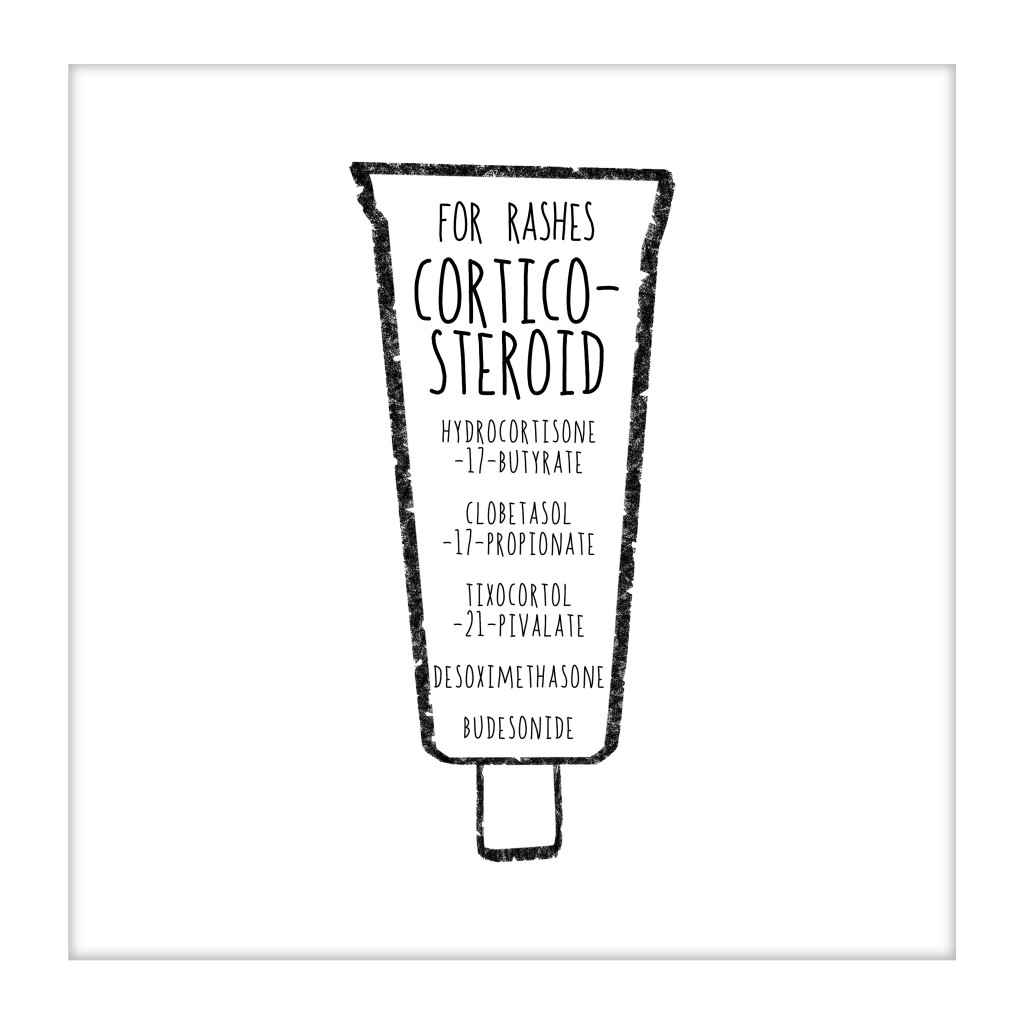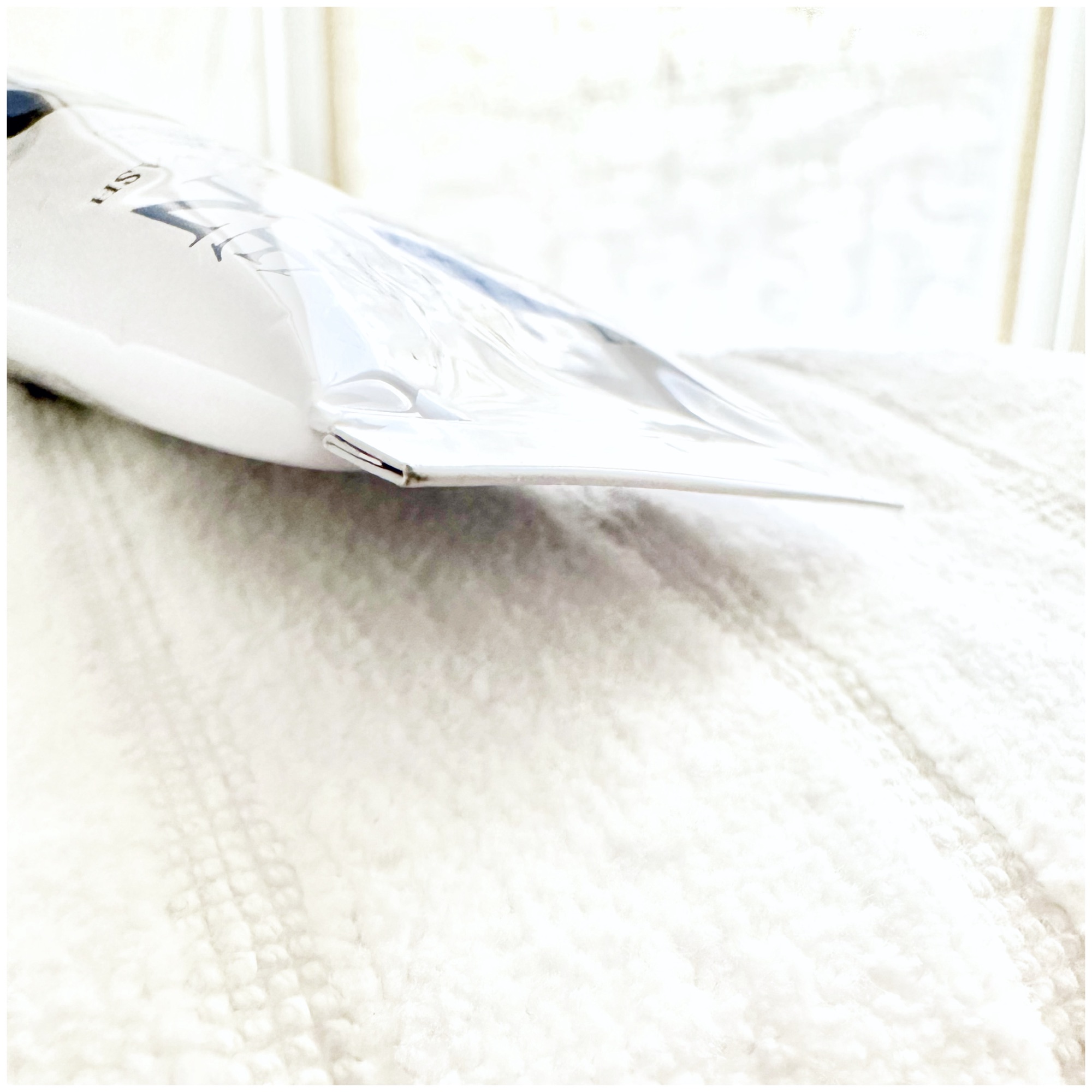It’s a cruel irony: steroids intended to calm extreme itching and inflammation may cause them…
…and other, more serious problems.
Topical steroids can be necessary and incredibly effective at easing the itch and inflammation of very bad flare-ups or allergic reactions. But use with caution.
Some steroids are top allergens (Corticosteroids were the American Contact Dermatitis Society‘s “allergen of the year” in 2005).
Long-term steroid use can:
- Thin the skin, making it drier, more sensitive to ever more ingredients, and more difficult to treat;
- Result in decreasing efficacy…so you end up using more and more to try to get similar relief…which leads to less relief and more use;
- Steroidal acne;
- Rebound phenomenon when trying to wean off of steroids;
- Debilitating and sometimes fatal conditions like Cushing’s disease.
Even chronic contact dermatitis, psoriasis, atopic dermatitis, and other inflammatory conditions can be managed very well by:
- Consistent and accurate prevention: chronically dry skin and frequent flare-ups are frequently a matter of not yet identifying the triggers, or not avoiding them as carefully (for example, using a “fragrance-free” soap that actually contains related ingredients such as benzyl alcohol; using clothing that has dyes with hidden metals; inhaling fragrance via scented candles, etc.). The first step is getting a patch test and working closely with a contact dermatitis specialist to identify what you might be coming into contact with that has your allergens, but may not be immediately obvious.
- Prioritizing barrier care: in many inflamed skin conditions, the skin’s barrier is compromised. Intensive, protective moisturizers, more occlusive balms, virgin coconut oil (which has fatty acids native to skin), and other barrier-protective products can help.
- Anti-inflammatory lifestyle: getting enough sleep, proper nutrition, regular exercise are all ways to help reduce inflammation.
- Milder anti-inflammatories can also help so that, ideally, steroid use is limited to real emergencies, a few times a year.
For more information, check out:
CORTICOSTEROIDS: Allergen or Not An Allergen?
Topical Steroids Can Lead to Serious and Fatal Conditions
Steroids: Not For Long-Term Use
Case Studies: Dye Contact Dermatitis, Prolonged Steroid Use & Rebound, Psoriasis







